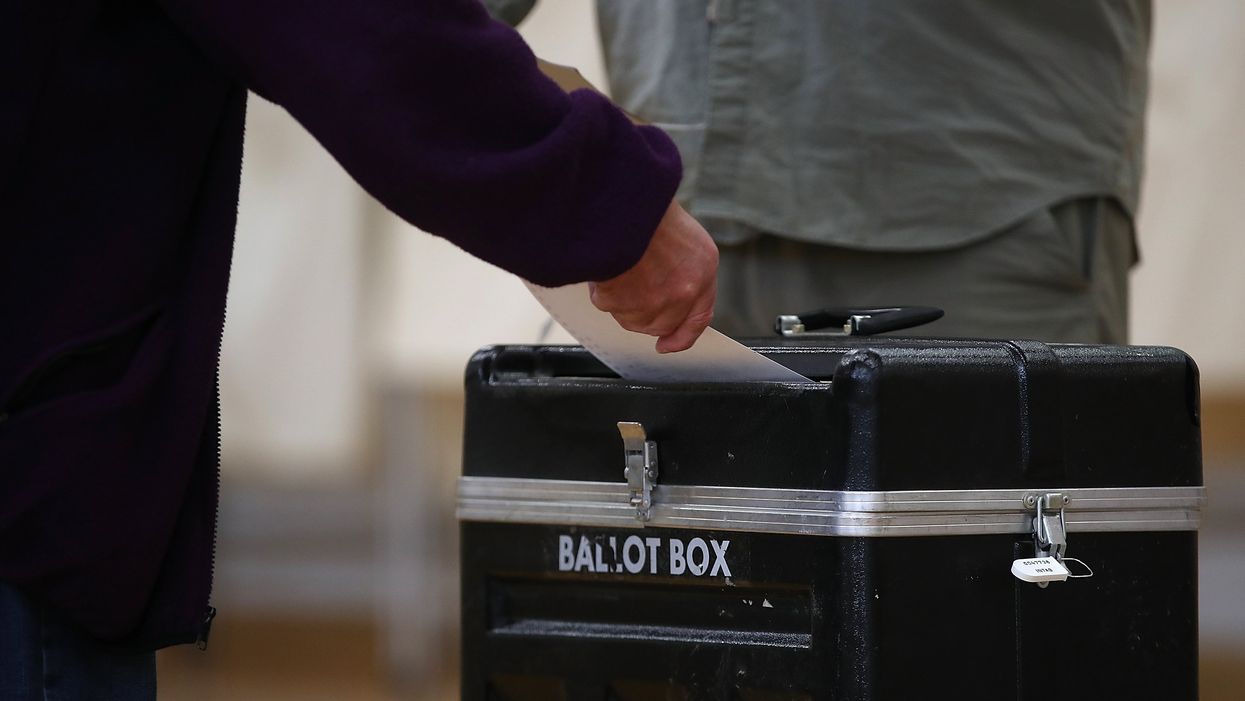UPDATE, Aug. 19: The state Supreme Court and a federal judge issued separate rulings Wednesday that will keep Green candidates off the ballot.
The Green Party is suing to keep itself on the ballot in Montana this fall, the latest testing of the limits of efforts to tamp down the small but persistent power of such minor political parties.
A state judge last week ordered five Green challengers removed from general election ballots on the grounds their candidacies had not been properly certified. The longshot lawsuit filed Tuesday in federal court seeks to overturn the judge's decision, arguing it violates the voting rights of, and effectively disenfranchises, approximately 800 Montanans who cast Green Party ballots in the June 3 primary.
This dispute is another example of the barriers third-party candidates face because of the American political duopoly. Many in the world of democracy reform argue that a baseline way to make the system work better is opening elections wider to candidates who don't identify within the increasingly polarized Republicans and Democrats.
Green candidates were initially allowed on the ballot in March, but only after the state Republican Party spent $100,000 to gather signatures on their putative rival's ballot petitions. The effort was not sanctioned, or appreciated, by the Greens.
Democrats then launched a campaign to convince voters who had signed the petitions to withdraw their support — arguing the GOP effort was an improper ploy to prop up the super-liberal Greens so they could peel away some votes that would normally be colored blue.
GOP Secretary of State Corey Stapleton blocked that effort, saying the Democrats had missed a deadline. State District Judge James Reynolds said no such deadline existed and allowed the withdrawals. This left the Green Party without the signatures needed to be on the ballot for any contests besides president — and its candidates were dropped from races for the Senate, the state's single House seat, governor, attorney general and a legislative seat in Helena..
The new suit argues the Green primary votes were cast lawfully and removing the party's candidates is unconstitutional and violates federal voting rights law.
"The buyer's remorse suffered by some of the Green Party petition signers well after the party qualified for the ballot — and well after many of the Green Party voters had cast ballots — did not justify the state court's cavalier disenfranchisement," the suit says.
Time is not on the plaintiffs' side. State law requires the names and party designations of candidates on the general election ballot be certified eight days from now.
Stapleton has also persuaded the state Supreme Court to rule in the dispute by next week's deadline.
The Greens — who advocate for social justice, environmental and economics policies way left of the Democrats — have fielded almost 100 other candidates in 22 states for congressional, legislative and local offices.
Their presidential nominee, 67-year-old retired UPS laborer Howie Hawkins from upstate New York, is already on the ballot in two dozen states including Montana, and has a chance to be on every ballot in the country because the process is different. The 2016 Green nominee, Jill Stein, came in fourth in the popular vote with 1.5 million, or 1 percent of the nationwide total.



















 Senate Committee on Commerce, Science, and Transportation ranking member Sen. Maria Cantwell (D-WA) (R) questions witnesses during a hearing in the Russell Senate Office Building on Capitol Hill on February 10, 2026 in Washington, DC. The hearing explored the proposed $3.5 billion acquisition of Tegna Inc. by Nexstar Media Group, which would create the largest regional TV station operator in the United States. (Photo by Chip Somodevilla/Getty Images)
Senate Committee on Commerce, Science, and Transportation ranking member Sen. Maria Cantwell (D-WA) (R) questions witnesses during a hearing in the Russell Senate Office Building on Capitol Hill on February 10, 2026 in Washington, DC. The hearing explored the proposed $3.5 billion acquisition of Tegna Inc. by Nexstar Media Group, which would create the largest regional TV station operator in the United States. (Photo by Chip Somodevilla/Getty Images)
